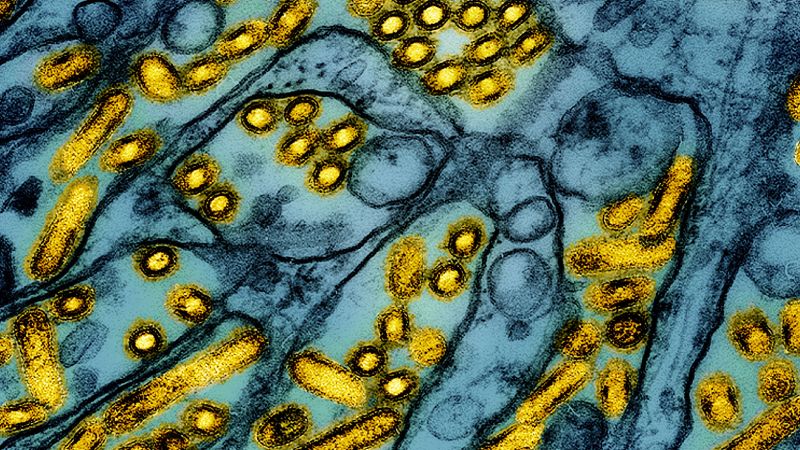Urgent alert for 70,000 people living in 12 Sydney suburbs as coronavirus is found in a sewage plant – as the REAL reason behind authorities’ obsession with faecal matter is revealed… and why it’s the key to handling outbreaks
- Urgent alert made for tens of thousands of Sydneysiders living across 12 suburbs
- Virus detected in sewage system in city’s north-west home to 70,000 residents
- Experts say testing sewage key even when there’s no community transmission
- Microbiologist Dr Dan Deere said it could be an early sign someone has the virus
- Can show those without symptoms are shedding the virus into sewage system
An urgent alert has been made for tens of thousands of Sydney residents living in 12 suburbs after coronavirus fragments were found in sewage at a water treatment plant.
The warning was raised on Wednesday after health authorities detected the virus in the sewage system that drains Riverstone, Vineyard, Marsden Park, Shanes Park, Quakers Hill, Oakville, Box Hill, The Ponds, Rouse Hill, Nelson, Schofields and Colebee in the city’s north-west.
New South Wales Health has urged the suburbs’ approximately 70,000 residents to get tested for COVID-19 even if they have the mildest of flu-like symptoms.
The alert follows a handful of similar discoveries in sewage water across Australia’s east coast in recent weeks despite almost non-existent levels of community transmission.
On November 20, health authorities in Melbourne urged residents of five suburbs in the city’s west to get tested after fragments of the virus were detected in sewage.
The advice to get tested came despite Melbourne as a whole not having had any positive tests for three weeks before the alert.
Similarly, seventeen suburbs in Cairns, in far north Queensland – where only 35 cases have been recorded since the pandemic began – were put on high alert last week after traces were found in sewage.
Water Research Australia microbiologist Dr Dan Deere told Daily Mail Australia testing sewage water was vital as a positive test could be an early sign someone in the community has COVID-19 but is yet to show symptoms.
Health authorities in New South Wales have issued an urgent alert for tens of thousands of Sydney residents living in 12 suburbs after coronavirus fragments were found in sewage particles
Suburbs across Australia have been put on high alert in recent weeks after COVID-19 particles were found in waste water
‘The older you get the more likely you are to have symptoms, so if you are younger, there may be little to no sign you have the virus,’ he said.
‘It’s very common to have the virus and carry it around without symptoms.
‘The idea with sewage testing is even if you have no symptoms, you’ll still shed the virus into the wastewater.’
Dr Deere is a water treatment specialist helping to co-ordinate a public health project across Australia to share advances in coronavirus tracing in sewage.
He said detecting fragments in waste water was often most important in places like Cairns where there has been no recent community transmission.
‘The traces could be from someone in the early stages of having the virus – before being infectious – so it could be a warning of a possible outbreak,’ he said.
Water Research Australia microbiologist Dr Dan Deere said traces of the virus in sewage could be an early sign someone in the community has COVID-19. Pictured is a file image of a worker testing sewage
Victoria’s Department of Health and Human Services said fragments detected where there have been recent coronavirus cases likely require no additional public health measures.
In that case, the virus has likely been ‘shed’ by someone who is no longer infectious but is still carrying traces of COVID-19 in their body.
‘You can get infected and then shed the virus for a couple of months after,’ Dr Deere said.
Nurses pictured conducting COVID-19 tests in Bondi Beach, Sydney. Dr Deere said traces of the virus in sewage could be an early sign someone in the community has COVID-19
Seventeen suburbs in Cairns, far north Queensland were put on high alert after coronavirus fragments were found in the city’s sewage system (file image)
‘After your body has created an immune response you can be carrying it around for a couple of months in your system.’
Water Research Australia project ColoSSoS (Collaboration on Sewage Surveillance of SARS-COV-2) aims to detect coronavirus in waste water at a cost of just $500 per sample.
In Victoria alone, scientists are taking 300 samples a week from 25 sites in the hope of more efficiently tracing the virus in waste water.







